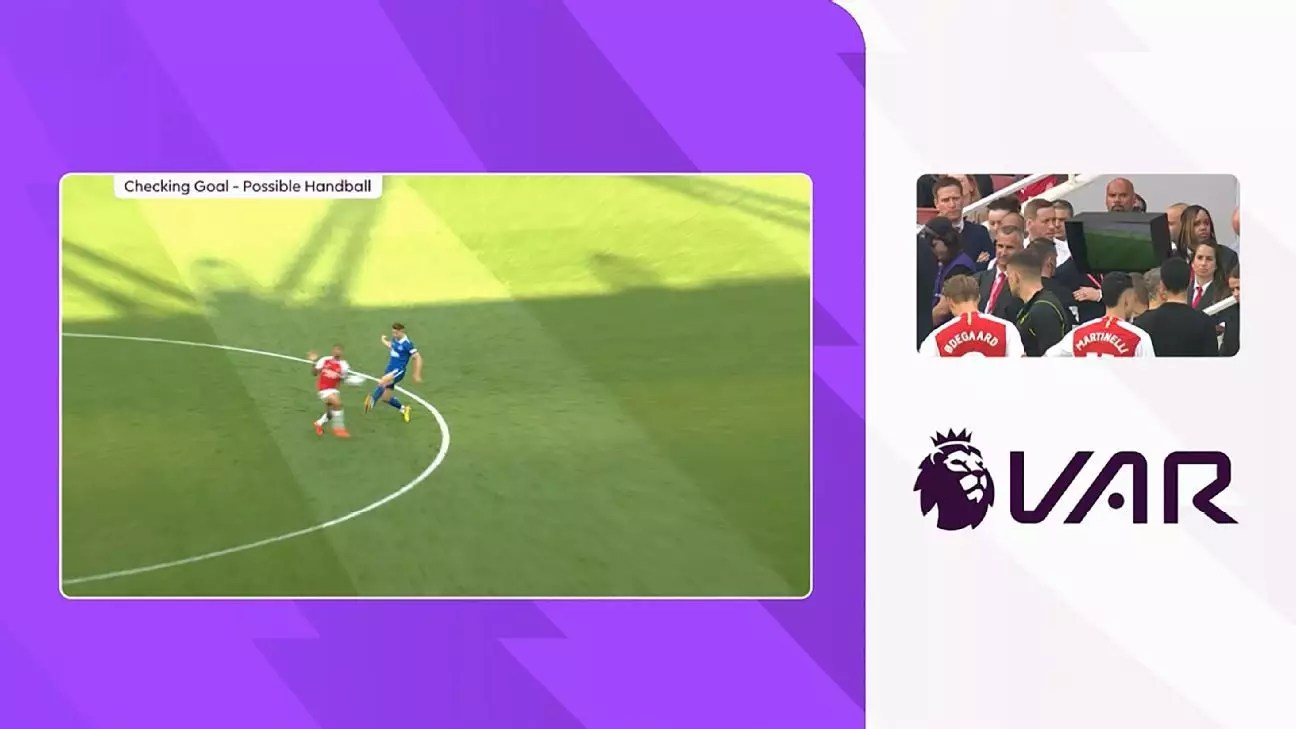The recent match between Arsenal and Everton raised questions about the effectiveness of the Video Assistant Referee (VAR) system in the Premier League. The incident in question involved a goal scored by Kai Havertz, which was initially disallowed for a handball by Gabriel Jesus in the build-up. Despite the VAR’s recommendation to overturn the decision, referee Michael Oliver chose to stick with his original call. This controversial decision highlighted the subjective nature of VAR interventions and the challenges of maintaining consistency in refereeing standards.
Another contentious VAR moment occurred during the match between Wolverhampton Wanderers and Liverpool, where Nélson Semedo received a red card for a challenge on Alexis Mac Allister. The VAR review led to the upgrading of the initial yellow card to a red, sparking debates about the interpretation of the laws of the game and the consistency of officiating decisions. The incident demonstrated the significant impact that VAR can have on the outcome of a match and the subsequent repercussions for the teams involved.
A penalty decision in the Newcastle United game against Brentford further underscored the complexities of VAR implementation. Initially awarded for a foul on Lewis Hall inside the penalty area, the decision was later overturned after VAR review deemed the contact to have occurred outside the box. This incident highlighted the challenges of defining clear boundaries for penalty decisions and the inherent subjectivity involved in interpreting the rules of the game.
The West Ham Handball Controversy
The disallowed goal for West Ham United due to a handball by Tomás Soucek raised questions about the role of VAR in adjudicating factual decisions. Soucek’s deliberate handball raised concerns about the consistency of VAR interventions and the criteria for determining when an intervention is necessary. The incident shed light on the fine line between deliberate and accidental handball violations and the implications for fair play and sportsmanship in football.
In a rare instance of VAR rectifying a refereeing error, the red card shown to Sheffield United’s Andre Brooks was rescinded after review. The incident highlighted the importance of VAR in correcting blatant mistakes and ensuring the integrity of the game. The swift reversal of the red card underscored the potential of VAR to rectify injustices and maintain fairness in officiating decisions.
The use of VAR in the Premier League continues to provoke debate and scrutiny regarding its impact on the game. While VAR has the potential to enhance decision-making accuracy and uphold the spirit of fair play, its implementation has been plagued by inconsistencies and subjective interpretations. The intricacies of VAR decision-making underscore the challenges of maintaining consistency and transparency in refereeing standards, raising questions about the future of technology in football officiating.


Leave a Reply